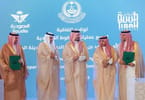Making money by going green, by reducing the company’s carbon footprint to zero – now that is a challenge, but as environmental awareness ranks ever higher among long-haul travelers – and Eastern Africa is a long-haul destination from most major tourist markets – the “going green” concept is gathering momentum and the time might just come sooner than expected when the “non-greeners” will be shunned and punished by a changing pattern of consumer behavior.
The UNWTO in mid last year already encouraged the global tourism sectors to move towards low carbon travel and presented a detailed report to the Copenhagen Climate Summit in response to increasingly visible climate change, playing its part in nudging the aviation, hospitality, and related subsectors towards making efforts towards going green and first capping and then dialing back carbon emissions related to their line of work and business. Their latest initiative was talking to the newly invented T20, ie, ministers responsible for tourism in twenty key countries, presenting them with updates on their Copenhagen submissions.
Here, as everywhere, it is the early birds which catch the proverbial worms, and the following story about SafariLink and Porini Camps might allow a glimpse into the future when opulence and consumption will need to be replaced by restraint and careful marshalling of the remaining resources. An airline going green, going carbon neutral, VOLUNTARILY – in this day and age of economic pressures, impossible you might think, especially in Eastern Africa where NO regulations exist as yet on the use of noise and air polluting aircraft.
Carbon emissions are not yet regulated in Eastern Africa, unlike some other areas around the world, which have now mandated that even aviation must fall in line with emission controls and mitigation, and here – in our part of the world – it is a indeed a voluntary measure, out of goodwill and concern for the environment, and well ahead of the time, when the East African Community member states will pass legislation and regulations of their own to bring Africa into line with the rest of the globe.
Yet, SafariLink has taken the courageous step to go fully carbon neutral, not just giving back to the environment and nature as a measure of PR or a one off but probably being foresighted enough to conclude that unless someone starts the trend, someone invests in giving nature a fighting chance to recuperate from the impact of constant industrialization and overuse of the available resources, that sooner or later they will have no clients left to fly into the parks, which could be – and arguably already are – one of the first victims of climate change. In fact their involvement goes beyond just becoming carbon neutral, but more about that further down the article.
So what is SafariLink doing, which others do not – or not yet anyway?
Hear it from the horse’s mouth directly, quoting the managing director and CEO of SafariLink, Mr. John Buckley, who is based at Nairobi’s Wilson Airport, an aviation veteran and long known (30 odd years that is) to this correspondent vis-a-vis telling a straight story:
“We know how many liters of Jet A1 fuel we burn on average each year from the hours flown per aircraft and the known average fuel consumption rate. Various websites give you a conversion figure for the amount of CO2 produced by burning a liter of Jet A1. Other websites give you a figure for the amount of CO2 ‘locked’ up by a typical tree during its lifetime. Hence it’s a simple calculation to come up with an approximate figure for the number of trees we need to plant to lock up the CO2 we produce each year. We have sub-contracted the actual tree planting to the Bill Woodley Mt. Kenya Trust. The actual fieldwork on the slopes of Mt. Kenya is done by women’s self-help groups in the Meru area so there is a secondary benefit as the women get an income. And apart from the CO2 aspect, the increased tree cover helps protect a major water catchment area. Also the trees are 100 percent indigenous trees.”
As part of SafariLink’s ongoing corporate social responsibility program, the charitable and community work includes this indigenous tree planting exercise on the foothills of Mt. Kenya National Reserve in conjunction with the Bill Woodley Mt. Kenya trust as explained earlier by the company’s CEO. This project is aimed to offset the carbon emissions from aircraft exhaust gases and hence minimize if not neutralize the operational impact on the Kenyan environment. Apart from making Safarilink the only carbon neutral airline in Kenya if not the entire region, the project will help re-forestation of a part of the Mt. Kenya region, which is a vital water catchment area and provides other uses for nearby residents who go foraging into the woods, as well as wildlife, which finds shelter and can retreat from the human populations around the edges of the national park. For those keen to actually learn more about this initiative and the Bill Woodley Mt. Kenya Trust, visit www.mountkenyatrust.org . Bill Woodley is best known in Kenya for his life work in wildlife conservation and the many years he actually was chief warden of the Tsavo National Parks.
Through another initiative Safarilink is involved in, according to their sales and marketing director Anu Vohora, Safarilink donates US$5 for each passenger flying into or out of the Lewa airstrip to the Lewa Wildlife Conservancy, which in turn protects the wildlife and habitat with the support of community conservation and development programs in the value of wildlife. Again, for those interested to learn more about Kenya’s globally best known and oldest conservancy, started by the late David Craig, visit www.lewa.org .
Moving on to the Porini Safari Camps and their eco rating and status. It is a fact that owner/founder Jake Grieves Cook is also the founder chairman of the Eco Tourism Society of Kenya, which now rates and grades properties in regard of their environmental behavior and performance, and he is the current chairman of the Kenya Tourist Board, ie, almost compelled to practice best environmental behavior in these various capacities to show an example to his peers. He has to be a leader, of course, and, in fact, does so out of conviction, recalling a recent dinner conversation with him while in Nairobi. He is a beacon of hope in an otherwise often bleak eco landscape when looking at the way other camps, lodges, and beach resorts dispose of their rubbish, treat their waste water, and use sustainable methods to make hot water or generate electricity.
Porini generates all their electricity with solar panels, and each guest tent has its own little battery and inverter to power the lights in the tent and the bathroom. The same applies for the mess and lounge tent, the manager’s office tent, the kitchen and stores, plus the staff accommodation. Batteries can be charged at all their properties in the manager’s office tent, which operates a stronger inverter suitable to power up batteries and keep the lodge’s communications going, ie, the radio communication to cars, walkie talkies to trackers and guides, and also to power their little ACER netbooks, through which each camp communicates to head office via a Safaricom wireless GPRS/EDGE/3G modem.
Rubbish is carried back to Nairobi, from all the camps, to be injected there into the recycling and disposal chain, while, for instance, vegetable and fruit cuttings are composted near each of the camps in a secure pit to enhance the soil quality once ready for disbursal.
Guests get hot water for the shower on request, about 18 liters at a go, enough to wash off the dust and sweat if used sparingly, ie, one has to get wet, then lather up, and only then run the water again to wash off the foam. I have since started to use this method at home too, because water is indeed enormously precious in Africa, and it does not matter that we live on Lake Victoria, the second largest fresh water lake on Earth, as even here water is life and wastage is no longer an option.
Heating is also done with eco briquettes from Nairobi, not by charcoal, which has proven to be the bane of forests across Eastern Africa and the continent as a whole, as hunger for wood fuel – often in the light of nearly unaffordable electricity tariffs – drives a growing population towards the use of charcoal, at the direct expense of the environment of course, one by cutting trees as if there is no tomorrow and two by releasing stored carbon into the environment when burning the wood.
Water is procured from secure boreholes near each of the camps, transported daily to the camp’s to replenish the large storage tanks, and pumped into them by motor pump, which on completion of the daily task is switched off again till the next day. These boreholes are also available for the Masai families living nearby, even outside the conservancies, an added measure of keeping community relations at their best, because for those people, the phrase “water is life” is a crucial part of their survival and learned through the harsh lessons of prolonged droughts.
SafariLink, working hand in hand with and regularly used by Gamewatchers/Porini to fly their clients to Nanyuki, Amboseli, and the Masai Mara, makes a good partner for the camps, as their environmental credo complements each other and permits environmentally-conscious travelers to make an informed choice when deciding where to stay and whom to travel with.
The Porini Camps were awarded “Silver” status by the Eco Tourism Society of Kenya and are presently, so it is understood, working towards attaining “Gold” status, which will set them right on top of the green list in Kenya and, in fact, the entire region. In a business like theirs, which depends so much on an intact environment, as indeed all safari and wildlife/nature-based tourism does in the region, it is increasingly more important to safeguard one’s resources and neighborhoods and both Porini and SafariLink appear to be on that wavelength and way ahead of many others. It is only hoped that their potential and existing clients appreciate this all to the point of coming back time and again and also to promote them through word of mouth and thus reward them for their efforts and constant commitment to preserve and protect their environment.
I say this as there are too many pretenders around, and the attribute of eco or green in the name of a lodge or the promotional material and websites is often self-styled and self awarded without basis in fact. It is trendy to name oneself green or eco-friendly, but unless those attributes are a result of an independent audit by globally or regionally-recognized bodies, like the Eco Tourism Society of Kenya, Green Globe, and other similar organizations, caution is counseled when reading or coming across the eco additions to a lodge or camp.
Composting toilets, for instance, are ecofriendly, but chemical toilets are not, especially when emptied into the environment somewhere away from the camps because the waste processing and management chain does not exist. Treatment of waste water is an issue, as is the production of hot water – here ecofriendly means the use of sustainable energy sources, ie, solar heating panels, and not collecting firewood for the use in Tanganyika boilers. The use of generators is clearly less ecofriendly than the use of the admittedly much more expensive solar panels and inverter systems, but here we reach the crunch point. Ecofriendliness does cost more money, and investments in sustainable systems using renewable energy sources like sunlight are a lot more expensive as an initial investment than the conventional methods.
Removing all waste from the lodge or camp does cost a lot more than just burying it and burning it when no guests are around, and engaging in recycling, especially for the darned plastic bottles the safe drinking water that comes in, is costly and often much more complicated and goes to the heart of sustainability. Soaking building poles in old motor oil, or using phenomenally poisonous chemicals for treatment of wood against termites is not eco-friendly and neither is the use of charcoal in the kitchens of such establishments. Yet, that is where the true credentials for green and ecofriendly begin to kick in, but until and unless properly audited, I urge caution when coming across these terms in promotional materials. Here in Uganda for instance, no licensed body exists yet probably apart from ISO certifications – unlike the Kenyan Eco Tourism Society – which would audit environmental practices and then award, along internationally-recognized formats, the points scored and judge the performance of a property against such criteria.
Helping as a one off to plant a few trees here and there as a photo opportunity is laudable, but does not amount to being carbon neutral until again monitored and audited by a recognized international or regional body and then so certified.
We have a long way to go, as a global tourism industry and more specifically here in the region, but it is encouraging to see that some headway has been made across the border in Kenya, and it gives hope that such schemes and certification cum audit measures can eventually be extended to the entire region, so that the bad apples riding on travelers desires to go green can no longer so shamelessly exploit good intentions as often seen right now.
Congratulations, though, in the meantime to SafariLink and Porini, which are both subjecting themselves to the available audit systems and have obtained their certifications from organizations as presently available.
WHAT TO TAKE AWAY FROM THIS ARTICLE:
- Yet, SafariLink has taken the courageous step to go fully carbon neutral, not just giving back to the environment and nature as a measure of PR or a one off but probably being foresighted enough to conclude that unless someone starts the trend, someone invests in giving nature a fighting chance to recuperate from the impact of constant industrialization and overuse of the available resources, that sooner or later they will have no clients left to fly into the parks, which could be – and arguably already are – one of the first victims of climate change.
- Carbon emissions are not yet regulated in Eastern Africa, unlike some other areas around the world, which have now mandated that even aviation must fall in line with emission controls and mitigation, and here – in our part of the world – it is a indeed a voluntary measure, out of goodwill and concern for the environment, and well ahead of the time, when the East African Community member states will pass legislation and regulations of their own to bring Africa into line with the rest of the globe.
- The UNWTO in mid last year already encouraged the global tourism sectors to move towards low carbon travel and presented a detailed report to the Copenhagen Climate Summit in response to increasingly visible climate change, playing its part in nudging the aviation, hospitality, and related subsectors towards making efforts towards going green and first capping and then dialing back carbon emissions related to their line of work and business.






















